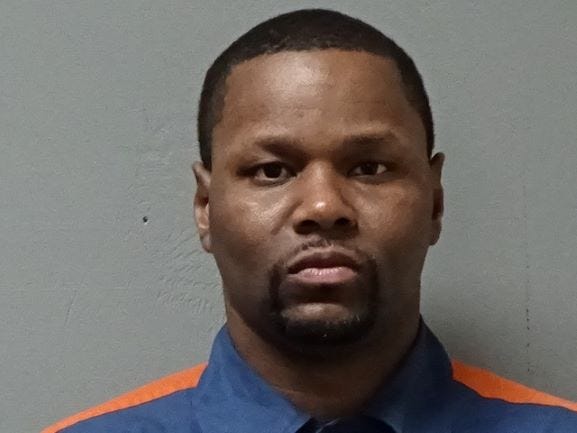Detroit juvenile lifer seeks exoneration, cites COVID-19 fears
 Oralandar Brand-Williams
Oralandar Brand-WilliamsTo stave off possible exposure to the deadly coronavirus, prison inmate Robert Hinds walks around the Chippewa Correctional Facility with his hands wrapped in a bleach-soaked rag to avoid infection.

Hinds, 36, says he's fighting two battles: to be released before a possible outbreak of COVID-19 in the Upper Peninsula prison and to be exonerated for a crime he claims he didn't commit. He's serving a life sentence after being convicted of first-degree murder in a May 2001 slaying.
"For almost 19 years, I have been wrongfully imprisoned for a crime I did not commit, but I have always maintained my claim of INNOCENCE!," Hinds wrote in a Facebook post. " I will not be quiet. #COVID19 is in the MDOC and right now I have to fight for my life more than ever."
Hinds complains that close living quarters, with seven other male prisoners in an “open bay” dormitory-style setting, makes him and other inmates vulnerable to infection.
"COVID-19 has spread to the Michigan prison population already infecting prisoners and staff and Mr. Hinds fears the pandemic could threaten his life before his expectant release from prison," said his attorney, Janey Lamar.
There have been no reported cases of COVID-19 at the Chippewa facility, which has 2,306 prisoners, according to Michigan Department of Corrections spokeswoman Holly Kramer.
As of Friday, Department of Corrections officials said all 38,130 prisoners at 29 prisons statewide had been tested, with 3,263 positive tests, 18,316 negative tests and 16,551 pending test results.
Corrections Department officials say the department "has been leading the nation when it comes to consistent testing of the prisoner population when they have symptoms."
Hinds is among Michigan juvenile lifers who are awaiting release from prison under a four-year-old U.S. Supreme Court ruling that found life sentences for teens to be "cruel and unusual punishment."
But Hinds said he wants exoneration, not a new sentence, because he's innocent in the slaying of Demond King on Detroit's east side.
"I believe the prosecution in each county bears the responsibility of identifying eligible juvenile lifers and providing a recommendation of a term of years or a continued life sentence," said Janey Lamar, Hinds' attorney. "The defense is able to make a case and argue it in response to the prosecution. Even if Robert were resentenced today, he would still be required to serve the minimum 25 years."
Lamar said her client has consistently professed his innocence.
Hinds and his lawyer said a case file maintained by the Detroit Police Department contained exculpatory evidence that was not disclosed to Hinds' trial attorney.
The Conviction Integrity Unit with the Wayne County Prosecutor's Office has been assigned to look into Hinds' case, assistant prosecutor Maria Miller said. "The status is that it is an open case," she said. "They have not done any work on it yet."
Miller declined to comment further.
bwilliams@detroitnews.com